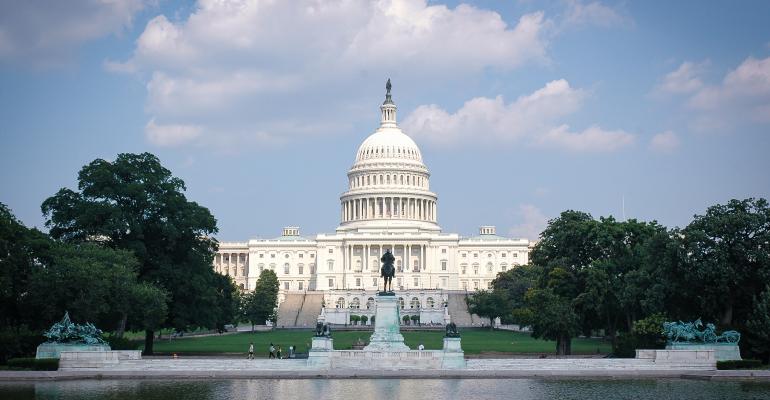Residents of the District of Columbia and Maryland will have the benefit of higher estate tax exemptions in 2018.1
Federal Exclusion Amounts
For 2018, the federal basic exclusion from gift and estate tax is $5.6 million, which is a $110,000 increase from the 2017 basic exclusion amount.2 The annual gift tax exclusion increased by $1,000 to $15,000 per donee for 2018, and the annual exclusion for gifts to non-U.S. citizen spouses is increased by $3,000 to $152,000.3
If Congress enacts H.R. 1 as currently written by either the House or Senate, the gift and estate tax exclusion will double to $11.2 million starting Jan. 1, 2018.4 The annual exclusions aren’t further increased under this proposed legislation.
D.C. Estate Tax
As a result of legislation enacted in 2015 and additional D.C. revenue in 2017, the D.C. estate tax exemption for 2018 and future years will be increased to match the federal exclusion amount (for example, $5.6 million for 2018).5 This is the highest the D.C. estate tax exemption has been since the current D.C. estate tax system became effective.
As modified by legislation in 2017, the D.C. estate tax exemption will match the federal basic exclusion amount, as it’s indexed for inflation.6 This means that if Congress enacts H.R. 1 as currently written by either the House or Senate, the D.C. estate tax exemption will jump from $2 million in 2017 to $11.2 million starting Jan. 1, 2018.
Maryland Estate Tax
For individuals dying in 2018, the Maryland estate tax exemption will be $4 million, which is a $1 million increase from the 2017 Maryland estate tax exemption. The Maryland increase is part of a 2014 law that gradually increases the Maryland estate tax exemption each year until 2019, when it will match the federal basic exclusion amount.
Similar to D.C., the Maryland estate tax exemption will match the federal basic exclusion amount starting in 2019, as it’s indexed for inflation. This means that if Congress enacts H.R. 1 as currently written by either the House or Senate, the Maryland estate tax exemption will jump from $4 million in 2018 to approximately $11.2 million starting Jan. 1, 2019.7
Endnotes:
1. Virginia repealed its estate tax, effective July 1, 2007. Florida’s estate tax ceased to apply when the federal government repealed the credit for state estate taxes.
2. Rev. Proc. 2017-58, § 3.35 (Oct. 19, 2017).
3. Rev. Proc. 2017-58, § 3.37(1) and (2).
4. H.R. 1 – 115th Congress (2017-2018), § 1602. The method for computing the inflation adjustments to the basic exclusion amount could be changed in H.R. 1 from the method being used in 2017. If that occurs, the exclusion amount for 2018 might be slightly different.
5. D.C. Code § 47-3701(14), as modified by Fiscal Year 2018 Budget Support Act of 2017 (D.C. Council Bill 22-244), § 7173(b) (effective Dec. 13, 2017).
6. Fiscal Year 2018 Budget Support Act of 2017 (D.C. Council Bill 22-244), § 7173(b) changes D.C. Code § 47-3701(14) to read in part: “‘Zero bracket amount’ means ... (C) For a decedent whose death occurs after December 31, 2017, an amount equal to the basic exclusion amount as prescribed in section 2010(c)(3)(A) of the Internal Revenue Code and any cost-of-living adjustments made pursuant to section 2010(c)(3)(B) of the Internal Revenue Code.”
7. Md. Code Ann., Tax-General § 7-309 (2017).





